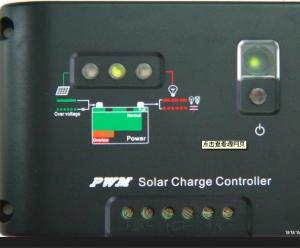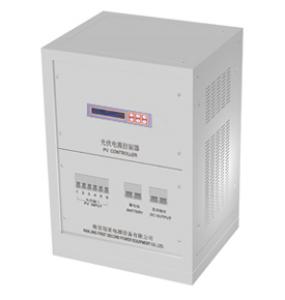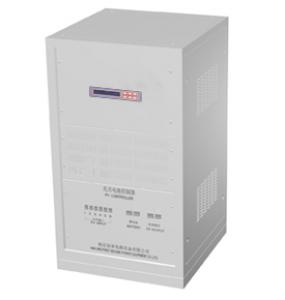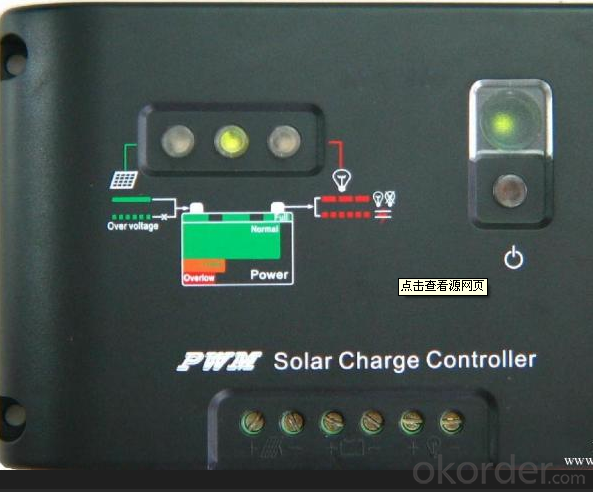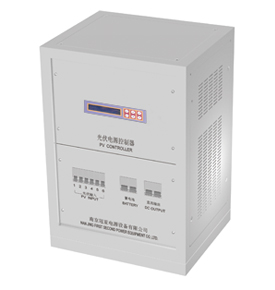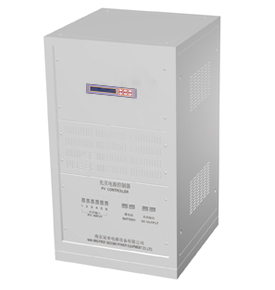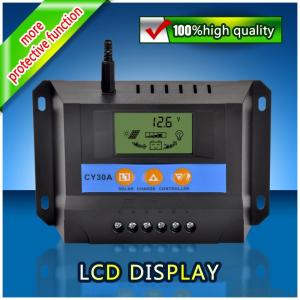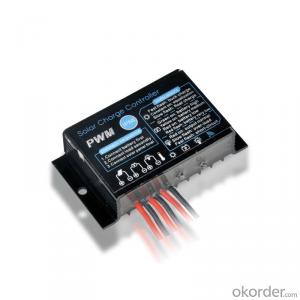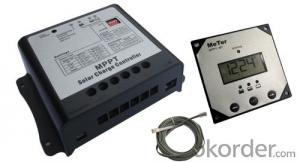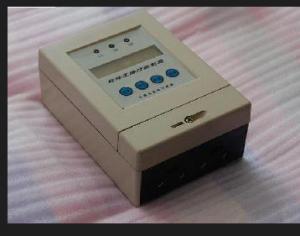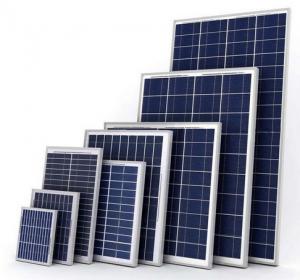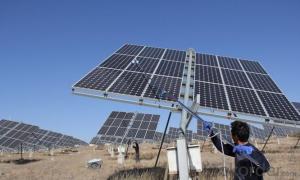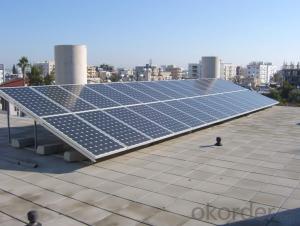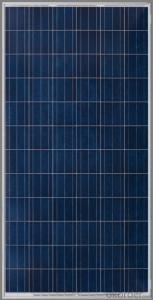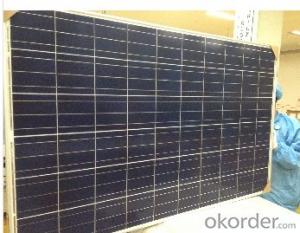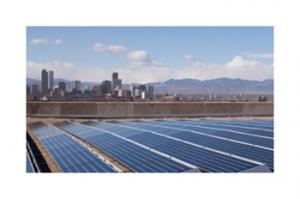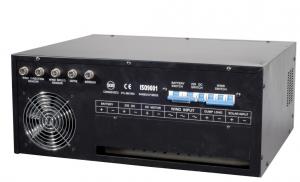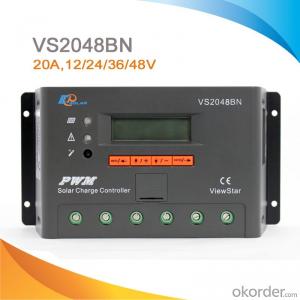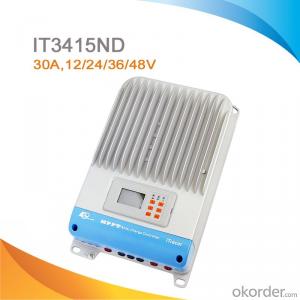Morningstar Solar Charge Controllers - PV Controller from China CNBM GS-50/100/150/200PF
OKorder Service Pledge
OKorder Financial Service
You Might Also Like
Description:
CNBMSOLAR is a world-leading and Vertical integrated manufacturer of high-performance with Silicon,
Wafer, Cells, Modules, which convert sunlight into electricity for residential, commercial, and utility-scale
power generation.
The capacity of CNBMSOLAR is reach to 1GW, and make sure each year our shipment capacity is more
Than 700-800MWs, at the same time, we have set up the largest solar power station with our partner
in Ukraine.
CNBM is a Quality + Service oriented company with“Excellence at Each Step” approach, composed of
the finest components from TUV and IEC-certified partners around the world, CNBM modules consistently
undergo a variety of trials at the company’s Test & Development Centre, ensuring peak performance
capabilities. The company is committed to develop and provide the world with clean and renewable energy
to ease the energy shortages as well as human kind’s impact on the environment.
Data:
Model | GS-50PFL2-R | GS-100PFL4-V | GS-150PFL6-V | GS-200PFL6-V | GS-300PFL6-V | ||
Rated Capacity(A) | 50 | 100 | 150 | 200 | 300 | ||
Max.PV modules output power(kwp) | 10.8 | 21.6 | 32.4 | 43.2 | 64.8 | ||
Rated Voltage(VDC) | 216 | 216 | 216 | 216 | 216 | ||
Max Load Current(A) | 50 | 100 | 150 | 200 | 300 | ||
Max Current on charging(A) | 55 | 110 | 165 | 220 | 330 | ||
Charge Loops | 2 | 4 | 6 | 6 | 6 | ||
Each PV maximum current (A) | 25 | 25 | 25 | 34 | 50 | ||
Max.Open circuitvoltage(VDC) | 500 | 500 | 500 | 500 | 500 | ||
Overcharge protection | 255.6 | 255.6 | 255.6 | 255.6 | 255.6 | ||
Overdischarge protection | Protection | 194 | 194 | 194 | 194 | 194 | |
Resumption | 238 | 238 | 238 | 238 | 238 | ||
Current without load(ma) | <100 | <100 | <100 | <100 | <100 | ||
First low voltage protection for one load | Optional | Optional | Optional | Optional | Optional | ||
Diesel machine start | Optional | Optional | Optional | Optional | Optional | ||
Temperature compensation | Optional | Optional | Optional | Optional | Optional | ||
Display | LCD | LCD | LCD | LCD | LCD | ||
Display content | Battery voltage, loading current, charging current | ||||||
Communication interface(standard) | RS232 | RS232 | RS232 | RS232 | RS232 | ||
Lighting protection device(standard) | Piezo-resistor lighting protection | ||||||
Protection | Overcharge, over discharge, overload, short circuit, reverse polarity, lighting arrestor | ||||||
Protection class | IP20 | IP20 | IP20 | IP20 | IP20 | ||
Voltage descent(VDC) | Between solar battery and lead-acid battery | 0.7 | 0.7 | 0.7 | 0.7 | 0.7 | |
Between lead-acid battery and load | 0.1 | 0.1 | 0.1 | 0.1 | 0.1 | ||
Insulation resistance | ≥50MΩ | ≥50MΩ | ≥50MΩ | ≥50MΩ | ≥50MΩ | ||
Radiator temperature | ≤35℃(rated power reach heat balance) | ||||||
Withstand Voltage | 2500V | 2500V | 2500V | 2500V | 2500V | ||
Noisy(db、1m) | ≤50 | ≤50 | ≤50 | ≤50 | ≤50 | ||
Operating temperature(℃) | -10~+50 | -10~+50 | -10~+50 | -10~+50 | -10~+50 | ||
Storage temperature(℃) | -25~+55 | -25~+55 | -25~+55 | -25~+55 | -25~+55 | ||
Operating humidity | 0~95%(non-condensing) | ||||||
Operating altitude(m) | ≤5000(applied regulation on GB/T3859.2 when sea level above 1000m) | ||||||
Dimension(dxwxh)mm | 350×483×177 | 500×480×850 | 500×600×1100 | 500×600×1100 | 500×600×1100 | ||
Weight(Kg) | 20 | 75 | 110 | 115 | 120 | ||
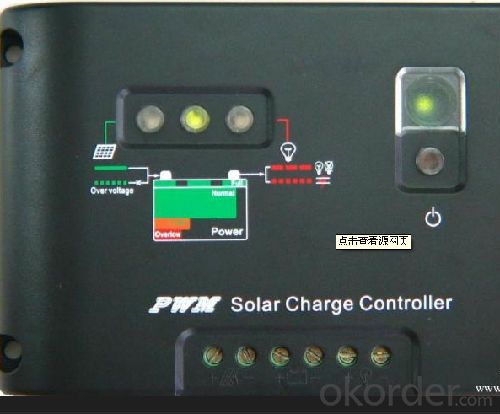
FAQ:Pls introduce more about CNBM.
CNBM Group is short for China National Building Materials Group Corporation, which is established in 1984 with approval from the State Council
CNBM Group is the largest comprehensive building materials industry group in China
The Group has a total asset of over RMB 360 billion, more than 180,000 employees and 17 subsidiaries
- Q: How does a solar controller handle voltage drop in the wiring?
- A solar controller handles voltage drop in the wiring by utilizing a built-in circuitry that detects and compensates for the drop in voltage. It adjusts the charging parameters accordingly to ensure the solar panel's output voltage is sufficient to charge the battery effectively, despite the voltage loss in the wiring.
- Q: Can a solar controller be used with solar-powered smart city infrastructure?
- Solar-powered smart city infrastructure can indeed utilize a solar controller. This device, also referred to as a charge controller or regulator, plays a crucial role in a solar power system. Its primary function involves regulating the voltage and current from the solar panels to effectively charge the batteries and prevent overcharging. When it comes to solar-powered smart city infrastructure such as streetlights, traffic signals, or surveillance systems, a solar controller becomes even more essential. It plays a pivotal role in managing the energy generated by the solar panels, ensuring proper storage in the batteries and releasing it as required to power the smart city devices. Moreover, a solar controller offers additional functionalities that prove advantageous for smart city infrastructure. Advanced models, for instance, come equipped with built-in communication capabilities, enabling them to connect to a central monitoring system. This facilitates real-time monitoring of the solar power system's performance, encompassing battery voltage, charging status, and other vital parameters. Such data plays a critical role in maintaining and optimizing the operation of smart city infrastructure. To conclude, a solar controller not only harmonizes with solar-powered smart city infrastructure but also serves as a vital component in guaranteeing efficient energy management and optimal performance of the entire system.
- Q: Can a solar controller be used with a solar-powered agricultural system?
- Yes, a solar controller can be used with a solar-powered agricultural system. A solar controller helps regulate and optimize the charging process of the solar panels, ensuring efficient power generation and preventing overcharging or damage to the batteries. It can also manage the distribution of power to various components of the agricultural system, such as water pumps, sensors, or irrigation systems, maximizing the use of solar energy and enhancing overall system performance.
- Q: Can a solar controller be used with a solar-powered restaurant or cafe?
- Yes, a solar controller can be used with a solar-powered restaurant or cafe. A solar controller helps regulate and optimize the energy flow from the solar panels to the batteries, ensuring efficient and reliable power supply to the establishment. It also protects the batteries from overcharging or discharging, extending their lifespan. Overall, a solar controller is an essential component for managing the solar power system in a restaurant or cafe.
- Q: Can a solar controller be used with a solar-powered landfill gas extraction system?
- Yes, a solar controller can be used with a solar-powered landfill gas extraction system. The solar controller helps regulate and optimize the charging and discharging of the batteries used to store the solar energy generated by the system. It ensures that the extracted landfill gas is efficiently converted into electricity while maintaining the battery life and system performance.
- Q: Are solar controllers necessary for small solar panel systems?
- Yes, solar controllers are necessary for small solar panel systems. Solar controllers, also known as charge controllers or regulator, are essential components in any solar power system. Their main function is to regulate and control the power flowing from the solar panels to the battery or grid. For small solar panel systems, solar controllers play a critical role in protecting the battery from overcharging or discharging. When the sun is shining and the solar panels are generating excess power, the controller ensures that the battery is not overcharged, which can damage the battery and decrease its lifespan. Conversely, during periods of low sunlight or at night, the controller prevents the battery from discharging too much, which can also cause damage. Moreover, solar controllers help to optimize the charging process by maximizing the efficiency of the solar panels. They use various techniques such as pulse width modulation (PWM) or maximum power point tracking (MPPT) to ensure that the solar panels are operating at their peak power output. This helps to capture the maximum amount of energy from the sun and charge the battery more effectively. In addition to these functions, solar controllers often include additional features such as temperature compensation, load control, and digital displays to provide information about the system's performance. These features can be particularly useful for small solar panel systems where monitoring and control are important. Overall, while solar controllers may add some cost to the system, their benefits far outweigh the expense. They are necessary components for small solar panel systems to ensure the efficient and safe operation of the system, prolong the battery's lifespan, and maximize the solar panels' performance.
- Q: Can a solar controller be used with solar street lights?
- Yes, a solar controller can be used with solar street lights. A solar controller helps regulate and optimize the charging of the batteries connected to the solar street lights. It ensures that the batteries receive the right amount of solar energy and prevents overcharging or discharging. This helps prolong the lifespan of the batteries and enhances the performance of the solar street lights.
- Q: What is the maximum load power consumption of a solar controller?
- The maximum load power consumption of a solar controller typically depends on its specifications and capabilities. Solar controllers are designed to regulate the charging and discharging of batteries in a solar power system. The maximum load power consumption refers to the amount of power that can be safely drawn from the controller to power connected devices or loads. The exact maximum load power consumption can vary between different models and brands of solar controllers. It is determined by factors such as the controller's maximum current rating, voltage rating, and any specific limitations mentioned by the manufacturer. To determine the maximum load power consumption of a solar controller, you need to consider the maximum current and voltage ratings. Multiply these values to get the maximum wattage that can be handled by the controller without exceeding its specifications. For example, if a solar controller has a maximum current rating of 20 amps and a maximum voltage rating of 12 volts, the maximum load power consumption would be 20 amps multiplied by 12 volts, which equals 240 watts. It is important to note that exceeding the maximum load power consumption of a solar controller can potentially damage the controller or cause it to malfunction. Therefore, it is crucial to carefully consider the power requirements of the loads being connected to the solar controller and ensure they fall within the specified limits to ensure proper operation and longevity of the system.
- Q: Can a solar controller be used with solar-powered indoor electric vehicle charging stations?
- Yes, a solar controller can be used with solar-powered indoor electric vehicle charging stations. The solar controller helps regulate and optimize the charging process by managing the flow of power from the solar panels to the charging station. It ensures that the charging station receives the appropriate amount of power based on the available sunlight and charging needs, resulting in efficient and effective charging of electric vehicles indoors.
- Q: Can a solar controller be used with a solar-powered wireless network?
- Yes, a solar controller can be used with a solar-powered wireless network. A solar controller helps regulate the power flow from the solar panels to the wireless network, ensuring that the network receives a steady and optimal power supply. This is important for maintaining a reliable and efficient operation of the wireless network.
Send your message to us
Morningstar Solar Charge Controllers - PV Controller from China CNBM GS-50/100/150/200PF
OKorder Service Pledge
OKorder Financial Service
Similar products
Hot products
Hot Searches
Related keywords
